DON'T MISS OUT
The Sony World Photography Awards exhibition is back with a powerful mix of photography and stories from around the world, featuring top talent and fresh perspectives.
Somerset House London, 17 April - 5 May.
The Sony World Photography Awards exhibition is back with a powerful mix of photography and stories from around the world, featuring top talent and fresh perspectives.
Somerset House London, 17 April - 5 May.
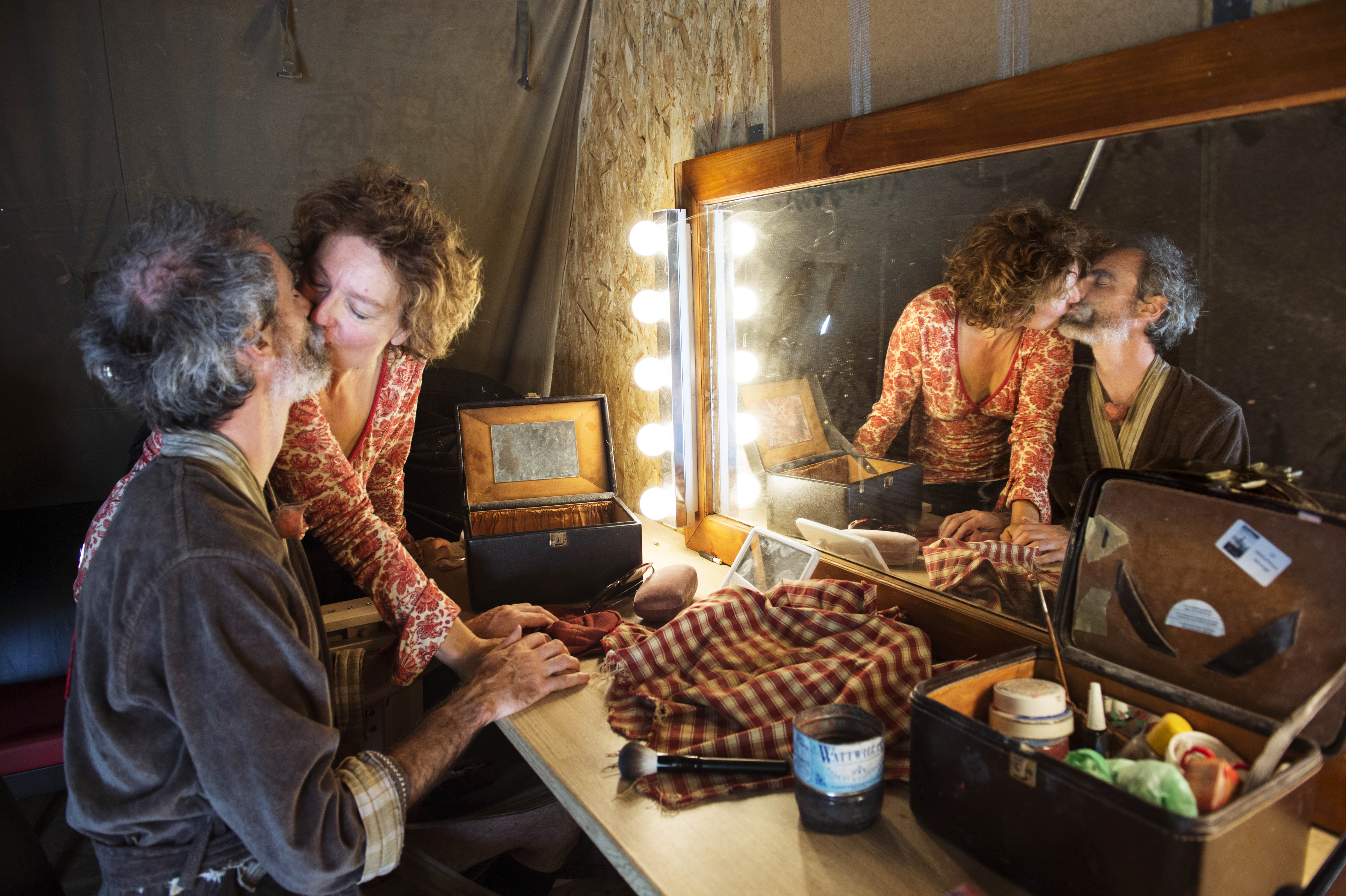
Stephanie Gengotti comes from a family of travellers. Since she was very little she had the chance to follow her parents in their journeys. When she was 7, her father took her to Bombay and showed her a street with children forced into prostitution. Since then her started to look at the world with a lot of empathy and curiosity.
Throughout the years, Gengotti began collecting things in her memory, extraordinary stories of ordinary lives. All of a sudden when she was in her 30’s, she quit her job as an interpreter at RAI television, and started this new, difficult, passion-driven path of photography.
Gengotti found a way to satisfy her curiosity, express her emotions, and communicate by telling stories. She achieved a graduate diploma in Photojournalism issued by the Scuola Romana di Fotografia and started to collaborate with Italian and International press.
Gengotti sees photography as a therapeutic medium, a channel with no filters to communicate with the individual, in a flow of continuous sharing to brighten the dark areas and unresolved aspects of the conscience, the individual and the artist. The need to establish an empathic and direct relationship often leads her to live in the same house and in the same identical daily routine as the main characters in her stories. A photograph is only the very last act, the catharsis, in a long and slow knowledge path.
“What is photography for me? The possibility of embracing the world,” says Gengotti. Her series called “Circus love, Les Pêcheurs de Rêves” was shortlisted in the 2018 Zeiss Photography Award.
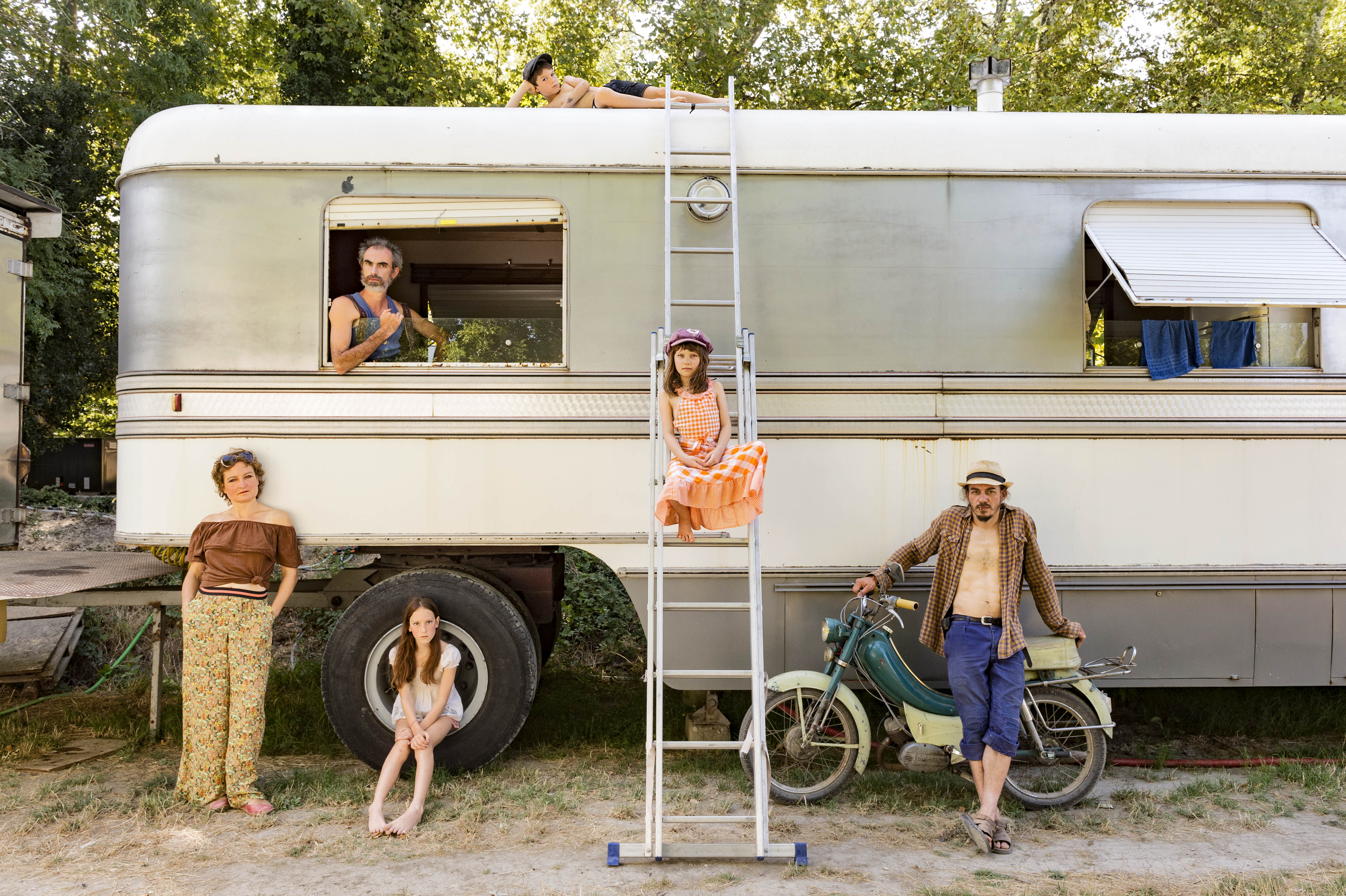
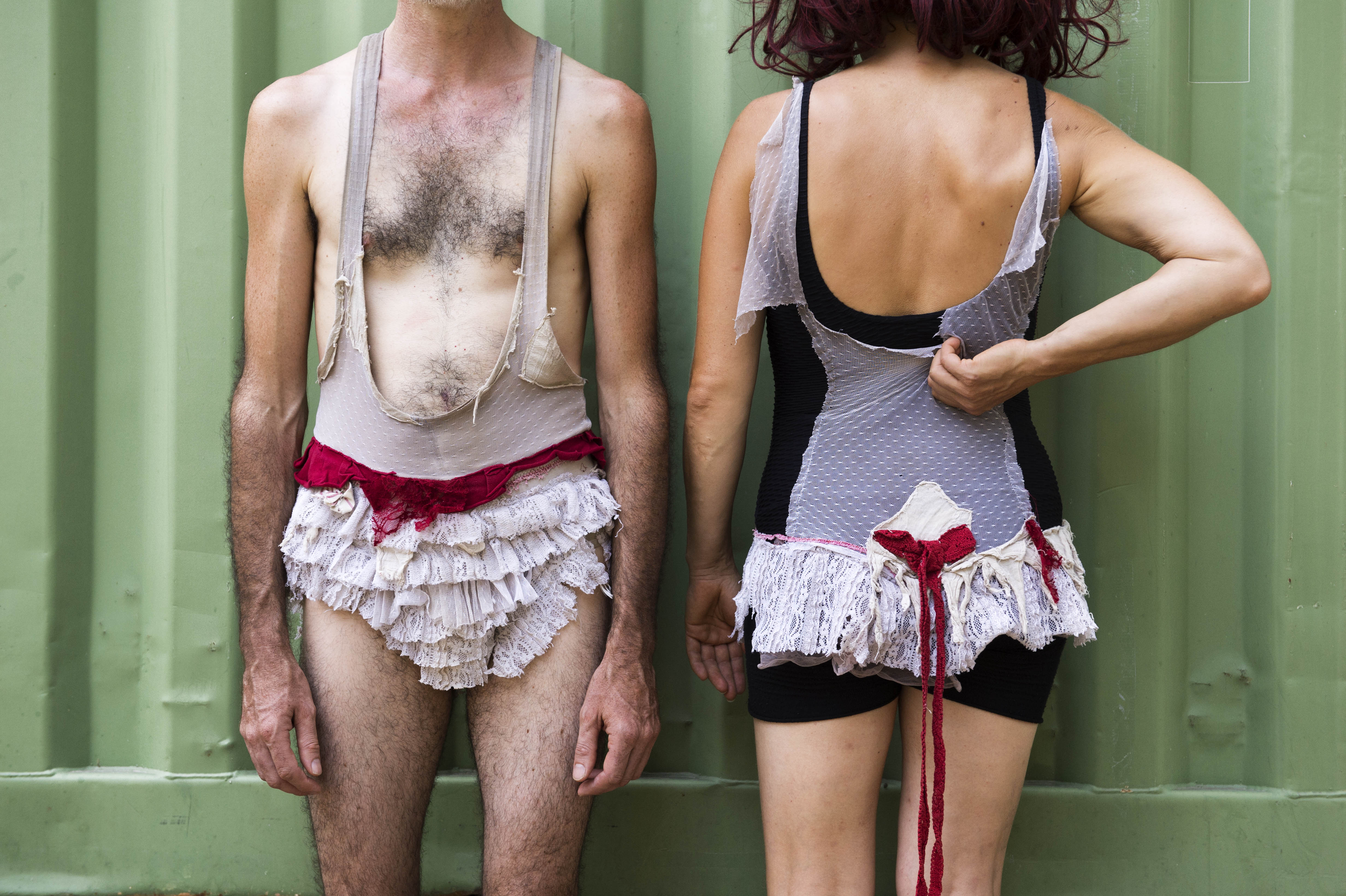
Can you tell us more about your series Circus love, Les Pêcheurs de Rêves, shortlisted in the 2018 Zeiss Awards?
It started out as an assignment for an Italian magazine. I was supposed to take pictures of two couples who are artists of the ‘Cirque Bidon,’ an amazing French Circus from the 70’s that travels around Europe on horse-drawn caravans. I had no idea I was about to fall in love with what I was going to see. The scene presented to me was not that of the traditional gypsy circus, but something so poetic, so out of time and so romantic that I was thrown into another planet. A ‘coup de foudre’ that has since lasted two years. I began discovering this new world and found out that there are festivals dedicated entirely to contemporary circus. I packed my bags and left for this adventure. ‘Les Pêcheurs de Rêves’ is a small family circus from France, where husband and wife duo Vincent and Florence play the roles of Za and Krapotte, two married clowns. In the performance they make a parody of their own life and marriage itself. Krapotte, like Florence, is the strong one in the couple, while Za (Vincent) does anything to please her. Real life mixes with fiction in this show, and their belief in their artistry is so strong that Florence and Vincent married under the “clownesque regime,” a name they invented to demonstrate their faith in the characters they created and continue to interpret. The family live in Strasbourg, but are traveling most of the time, to perform in various festivals. Their show titled ‘Nez pour s’aimer’, is a story of humor or love as shown on the affiche that launches the show, in a game of surreal assonance, thanks to the French words humor - amour. Zia (13 years old) and Zorhan (10 years old), travel most of the time with their parents because the shows are held mainly during the summer. The technical department is run by Marco, a single father that travels with his daughter, Luna (6 years old). While the parents sleep in their own caravans, the kids enjoy the wildlife of sleeping all together in a tent. They are left free to explore their universe, and learn from their school of life.
How did you approach and get to know Les Pêcheurs de Rêves?
The first circus I took pictures of for my project was The Brunette Bros, one of the smallest Circuses in the world. After spending some time with them I decided I needed to explore more of this world, I was fascinated by this different lifestyle, so free but yet with a strong family bond. My idea was to structure my project into chapters, each one would tell the story of a family in a different country. I started to search through some contacts and found out about this family that was going to stay for a month in the Avignon street festival in France. I was struck by their name ‘Les pecheurs de reves’ (the fisherman of dreams). I wrote them instinctively, asking if I could go and live with them for a while. They said yes! They loved the idea of telling their life behind the stage and the fact that I was not just passing by, but really wanted to experience through my own skin what it meant to be a part of the Circus.
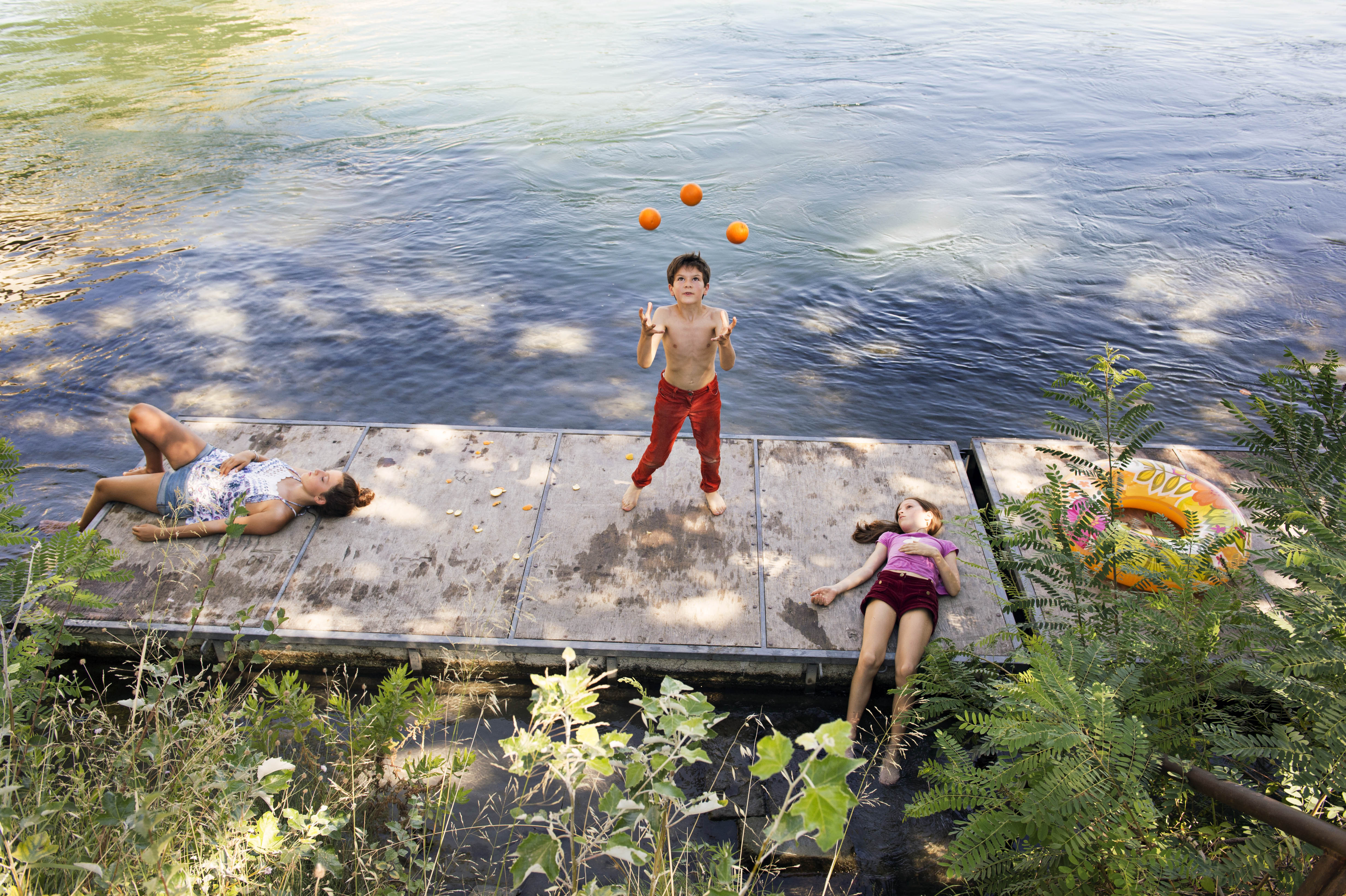
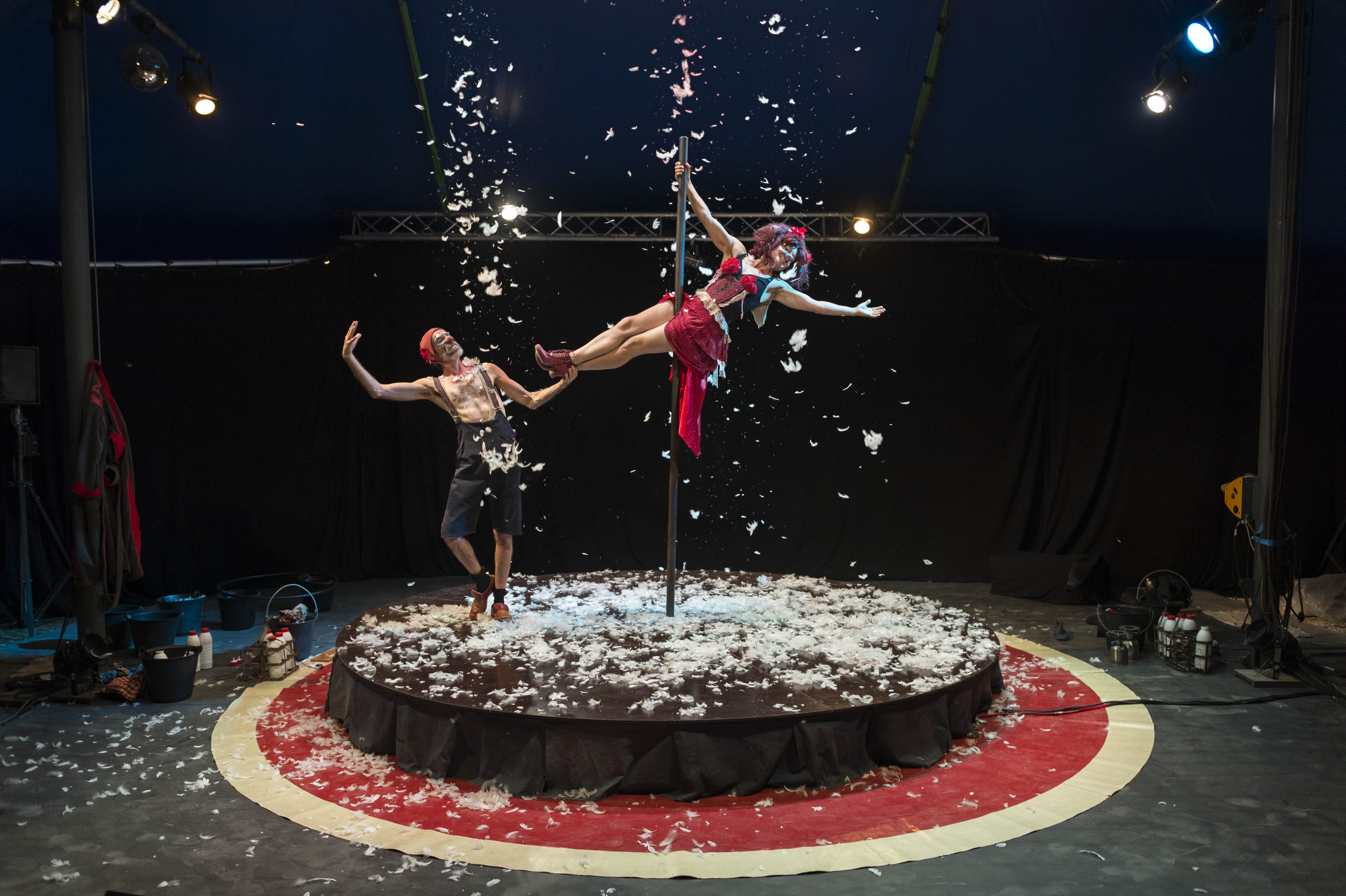
In your series, you describe a circus as patience and preparation, physical training and manual labour. What did you learn from it after spending many hours with them for your project?
To live with a Circus means to become a family member, to talk about everything, to discuss all, nothing is left unsaid, everything is resolved before entering the scene. There is no comfort but hard work in all types of weather conditions, everyone has his own specific task. Because I have no technical expertise I thought about other ways to make myself useful, my daily routine was to look after the kids, do the shopping, cooking, washing dishes. The photographic part was in between these tasks. Everyday we brainstormed and decided on what photographic situation we would work on, and they always found time just for me. Like in a movie set, photography for me is team work, the subject participates in the whole creative process.
The experience with them has made me realize that so many things have been lost in this hyper-technological era: the sense of sharing, the sense of family, the ability to do things with our hands. We have even lost the simple relationship with nature. Dependent on our mobile phones as robots, alienated on social networks to observe the fictitious lives of others. Time has undergone an unnatural acceleration. With the circus I had a feeling of pause, of a slowdown, to stop the crazy race for a more human dimension. We live in an era of absolute void, especially in my country, an age without personality and contents. The Circus is my cry of rebellion, a revolt against a world that I do not like anymore.
What was the most interesting thing to photograph?
Definitely their intimacy, when you travel together for such a long time in a caravan, you have to get used to sharing very small spaces like the bathroom, the bed, the kitchen and you kind of lose your individuality, you have to think of yourself as a member of a community, all your actions affect the others, for me it was very interesting to experience these kind of group dynamics.
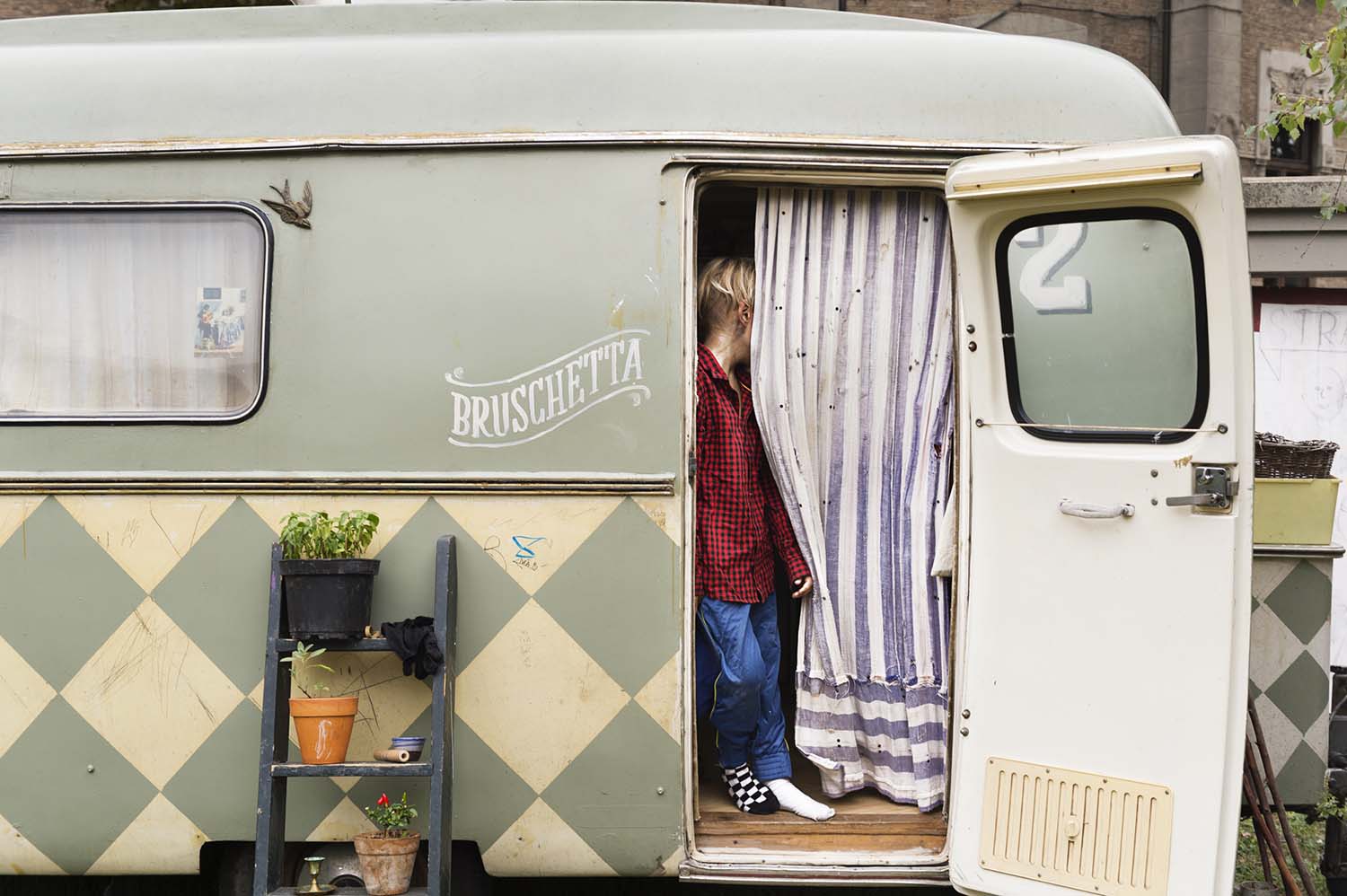
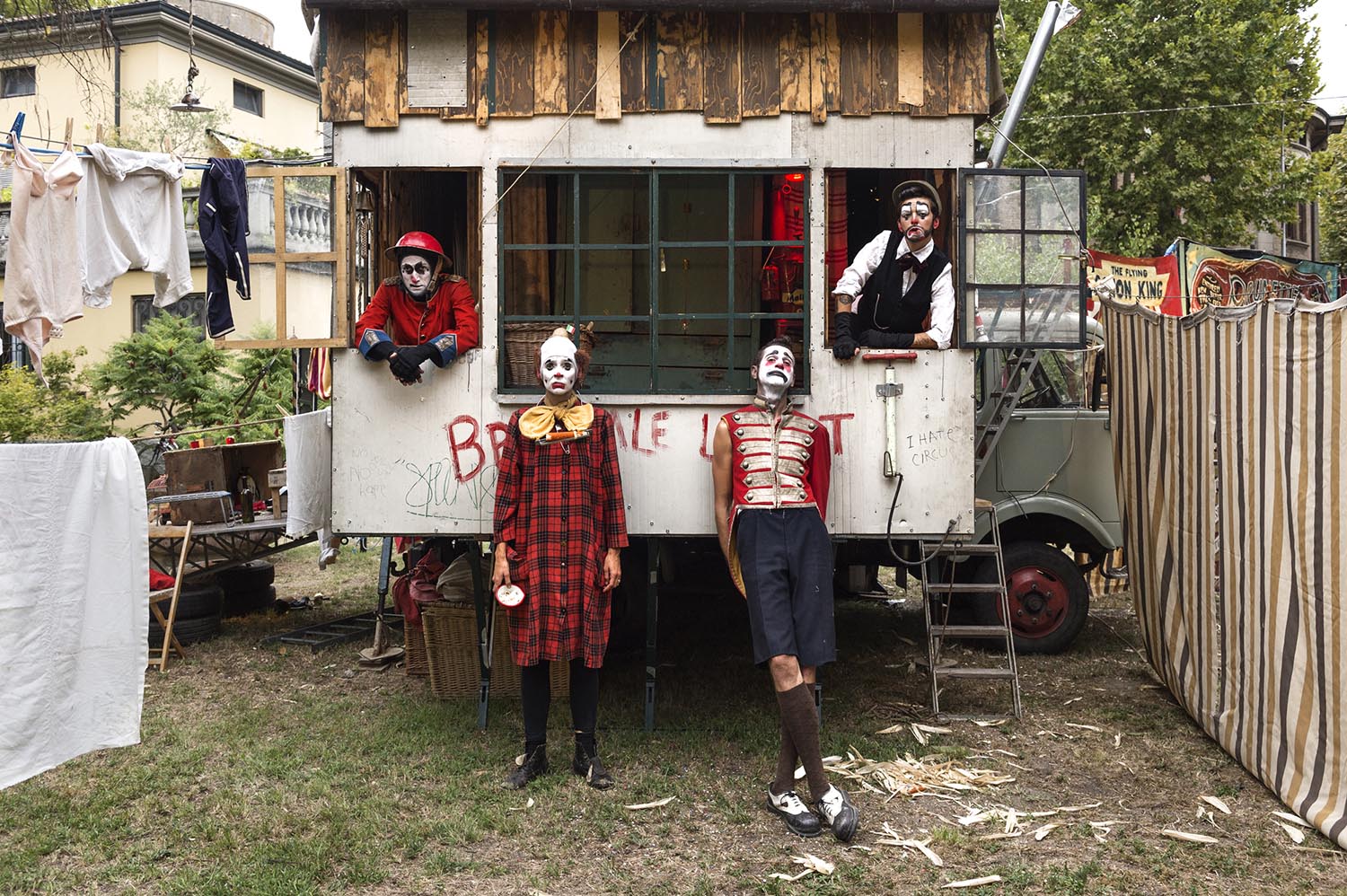
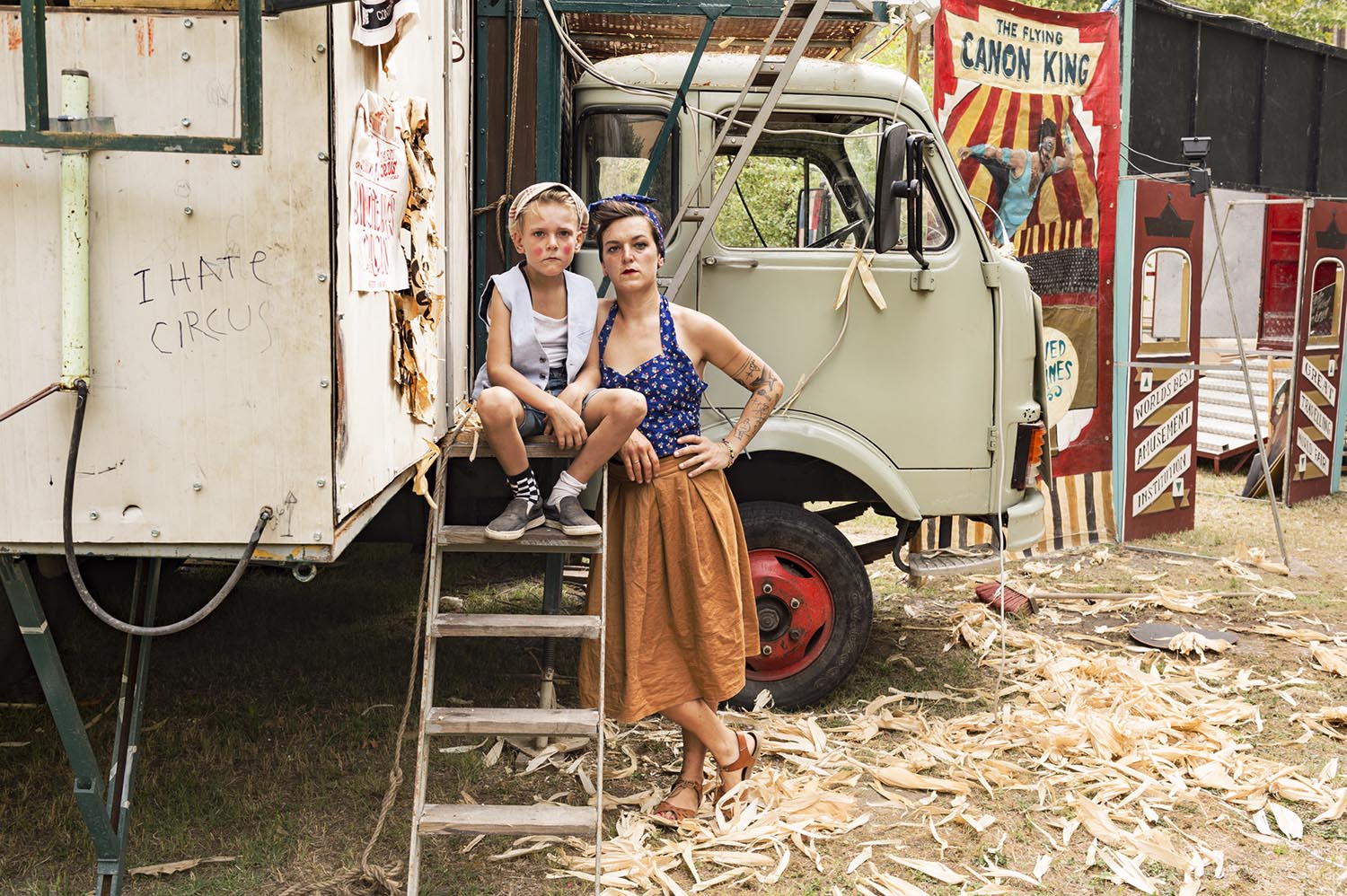
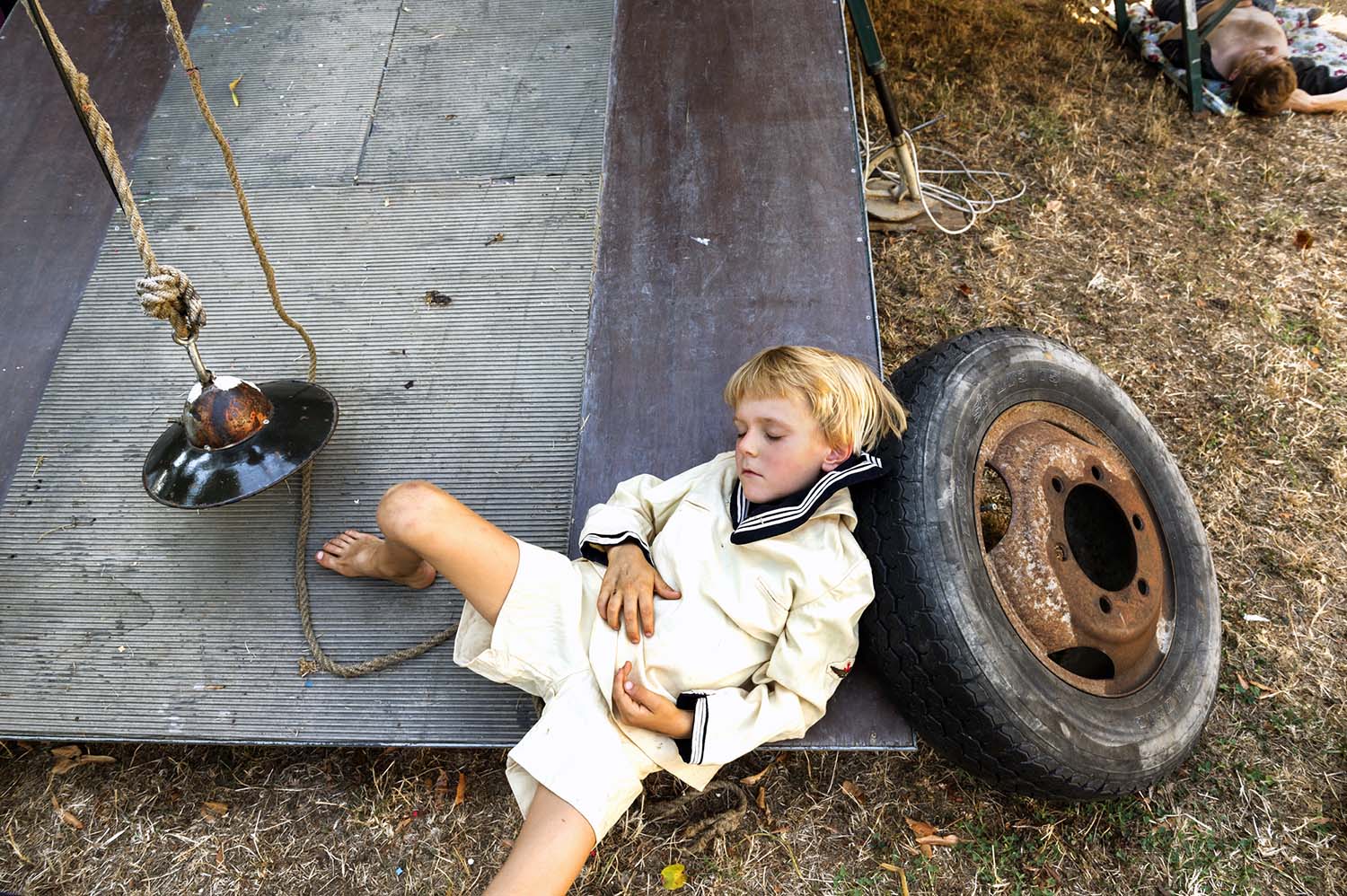
What are you currently working on?
I have just finished photographing ‘Circus love’ chapter 4, it’s going to take me some time to detach from this experience. Right now I’m meditating on new ideas with open heart waiting for the right one to capture me!
The Sony World Photography Awards exhibition is back with a powerful mix of photography and stories from around the world, featuring top talent and fresh perspectives.
Somerset House London, 17 April - 5 May.